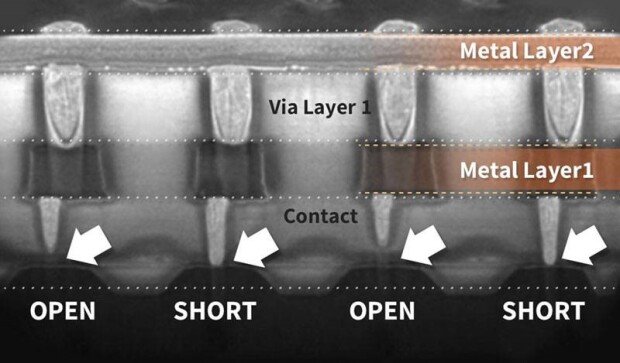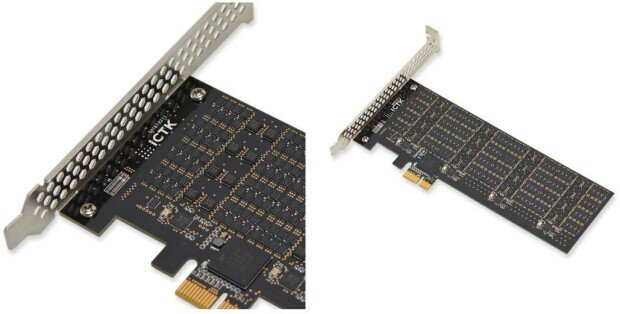ICTK: "The World’s First Commercialized PUF-Based Security Chip, Expanding into Defense Applications"
ICTK: "The World’s First Commercialized PUF-Based Security Chip, Expanding into Defense Applications"
Posted December. 20, 2024 10:39,
Updated December. 20, 2024 10:40
According to statistics released by the Korea Internet & Security Agency (KISA), in the first half of 2023 a total of 613 cyber security incidents were reported in South Korea, a 40% increase compared to the same period last year. Of these, 42.9% were server hacking, while 23.5% were ransomware and other malware, and DDoS attacks made up 14.5%. Each one of these types of attack poses significant risks to corporations and public institutions.
Growing concerns over such threats have fueled interest in advanced security technologies. With the proliferation of data and advancements in next-generation digital technologies like AI and quantum computing, the risk of cyberattacks is expected to increase dramatically. This has brought the "Zero Trust" concept—"Never trust anything, always verify"—to the forefront of information security.
ICTK, a distinguished fabless security company, has gained recognition for its unique security technologies. ICTK, led by CEO Justin J. Lee, won the grand prize in the "2024 Seoul Unicorn Challenge," part of the "Try Everything" global startup festival organized by the Seoul Business Agency (SBA) and the City of Seoul. ICTK is particularly notable for its achievements in the field of Physically Unclonable Functions (PUF), a security technology that has garnered global attention.
"A Dream Realized: The World’s First Commercialized PUF Technology"
PUF is a type of security processor and a hardware-based security technology that is a successor to smart cards. Although numerous organizations, including the U.S. Department of Defense, have attempted to implement PUF, commercialization has remained elusive due to reliance on active components that were prone to errors caused by environmental factors such as manufacturing variations, voltage changes, and aging. These shortcomings necessitated error correction codes or additional circuitry.
ICTK overcame these limitations with its "VIA PUF," which uses passive components. The technology utilizes "via holes"—microscopic openings in semiconductor metal layers filled with conductive materials like tungsten or copper—to create unique semiconductor values. Through its arrangement of 3,000 to 5,000 via holes smaller than standard specifications, ICTK generates a random binary code that serves as the semiconductor’s unique fingerprint.
ICTK overcame these limitations with its "VIA PUF," which uses passive components. The technology utilizes "via holes"—microscopic openings in semiconductor metal layers filled with conductive materials like tungsten or copper—to create unique semiconductor values. Through its arrangement of 3,000 to 5,000 via holes smaller than standard specifications, ICTK generates a random binary code that serves as the semiconductor’s unique fingerprint.
 Cross-section of a semiconductor utilizing VIA PUF technology / Source: ICTK
Cross-section of a semiconductor utilizing VIA PUF technology / Source: ICTK
These unique values are highly secure because they are not stored in memory and are indistinguishable from standard via holes. CEO Lee explained, "PUF-based unique values are practically impossible to extract, providing unparalleled protection against hacking."
ICTK emphasized that its PUF technology has also been integrated with Post-Quantum Cryptography (PQC) to address information security concerns in the quantum computing era. This innovation is the world’s first successful commercialization of PUF technology.
"Proven technological capabilities across various domestic and international fields"
ICTK’s VIA PUF technology has earned international trust, and has been designated as a "de facto standard" for Root of Trust (RoT) technologies by the Global Semiconductor Alliance (GSA). Security chips leveraging VIA PUF are employed in Hardware Security Modules (HSMs) and solutions to provide robust security.
The advantage of this technology is that it can be applied across various fields, including ▲Internet of Things (IoT), ▲Vehicle-to-Everything (V2X), ▲Operational Technology (OT), ▲video systems, and ▲defense. When used in IoT, it can enhance communication security between devices, preventing hacking and unauthorized modifications of firmware.
It can also counter deepfakes. "By applying the technology to devices used for capturing photos or videos, it can watermark the device's fingerprint onto the media to prevent tampering. In the defense industry, it offers robust security for various types of communication, showcasing its limitless potential," said CEO Lee.
 ICTK’s qTrustPCI product leveraging VIA PUF technology / Source: ICTK
ICTK’s qTrustPCI product leveraging VIA PUF technology / Source: ICTK
"LG Uplus, for example, has applied PUF-based security chips to ▲industrial USIMs, ▲eSIMs, ▲routers, and ▲home CCTVs (PUF VPN). After confirming the effectiveness of ICTK's security chips against hacking, the company has been gradually expanding their application," said CEO Lee. Additionally, in 2022, the company signed a contract with a prominent U.S. big tech company to supply security chips for authentication between next-generation products and peripherals. The company has completed preparations for commercialization, including provisioning (preparing IT resources for use).
"Due to the nature of security technologies, the names of specific companies cannot be disclosed. However, a variety of domestic and international companies are either using ICTK's security chips and solutions or considering their adoption," CEO Lee added.
"Bright Outlook for Security in the Defense Sector"
The defense sector, where security is of the utmost importance, shows a promising outlook for ICTK. In recent years, ICTK has participated in a range of defense industry events, including the Association of the United States Army (AUSA) exhibition held in Washington, D.C.
Through these events, ICTK has strengthened its network with military officials and defense contractors, meeting with major Korean and American defense companies and discussing collaboration centered around PUF technology. "Notably, we had a meeting with Lockheed Martin, a world-class aerospace and defense company, and were the only security company invited to the Korea-U.S. Defense Communication Technology Collaboration Workshop, a significant recognition," emphasized CEO Lee.
He also shared ICTK's aspirations for the global market. The company is pursuing certifications for international and domestic security standards, including ▲CC EAL 6+, ▲FIPS 140-3, and ▲KCMVP. Completing these certifications, which currently act as entry barriers for PUF security chips, is expected to enable ICTK to leverage its technological edge for a full-scale global market expansion.
In addition, ICTK hosted a webinar on November 21 in collaboration with its business partner, Rambus, a U.S. semiconductor intellectual property company. The webinar covered topics that included ▲VIA, ▲PUF, ▲trusted points, and ▲authentication solutions. CEO Lee commented, "During the webinar, we received inquiries about applying ICTK's technology to the defense and aerospace industries," which highlights the bright prospects for ICTK in the defense industry.
"Seoul Unicorn Challenge: Enhancing Global Competitiveness through SBA Support Programs"
Regarding the company’s grand prize win at the "2024 Seoul Unicorn Challenge" hosted by SBA, CEO Lee stated, "It is a great honor to have participated in the Seoul Unicorn Challenge, an event dedicated to discovering and supporting innovative startups, and to have received the grand prize."
He added, "SBA's corporate support programs offer broader flexibility in the use of funding compared to other programs, enabling us to expand our global business initiatives. This has allowed us to engage in more proactive and aggressive business activities. We will strive to make the most of this opportunity to enhance ICTK's global competitiveness and achieve meaningful results that can serve as a benchmark for other companies."
by Young-woo Kim (pengo@itdonga.com)
Growing concerns over such threats have fueled interest in advanced security technologies. With the proliferation of data and advancements in next-generation digital technologies like AI and quantum computing, the risk of cyberattacks is expected to increase dramatically. This has brought the "Zero Trust" concept—"Never trust anything, always verify"—to the forefront of information security.
ICTK, a distinguished fabless security company, has gained recognition for its unique security technologies. ICTK, led by CEO Justin J. Lee, won the grand prize in the "2024 Seoul Unicorn Challenge," part of the "Try Everything" global startup festival organized by the Seoul Business Agency (SBA) and the City of Seoul. ICTK is particularly notable for its achievements in the field of Physically Unclonable Functions (PUF), a security technology that has garnered global attention.
"A Dream Realized: The World’s First Commercialized PUF Technology"
PUF is a type of security processor and a hardware-based security technology that is a successor to smart cards. Although numerous organizations, including the U.S. Department of Defense, have attempted to implement PUF, commercialization has remained elusive due to reliance on active components that were prone to errors caused by environmental factors such as manufacturing variations, voltage changes, and aging. These shortcomings necessitated error correction codes or additional circuitry.
ICTK overcame these limitations with its "VIA PUF," which uses passive components. The technology utilizes "via holes"—microscopic openings in semiconductor metal layers filled with conductive materials like tungsten or copper—to create unique semiconductor values. Through its arrangement of 3,000 to 5,000 via holes smaller than standard specifications, ICTK generates a random binary code that serves as the semiconductor’s unique fingerprint.
ICTK overcame these limitations with its "VIA PUF," which uses passive components. The technology utilizes "via holes"—microscopic openings in semiconductor metal layers filled with conductive materials like tungsten or copper—to create unique semiconductor values. Through its arrangement of 3,000 to 5,000 via holes smaller than standard specifications, ICTK generates a random binary code that serves as the semiconductor’s unique fingerprint.

These unique values are highly secure because they are not stored in memory and are indistinguishable from standard via holes. CEO Lee explained, "PUF-based unique values are practically impossible to extract, providing unparalleled protection against hacking."
ICTK emphasized that its PUF technology has also been integrated with Post-Quantum Cryptography (PQC) to address information security concerns in the quantum computing era. This innovation is the world’s first successful commercialization of PUF technology.
"Proven technological capabilities across various domestic and international fields"
ICTK’s VIA PUF technology has earned international trust, and has been designated as a "de facto standard" for Root of Trust (RoT) technologies by the Global Semiconductor Alliance (GSA). Security chips leveraging VIA PUF are employed in Hardware Security Modules (HSMs) and solutions to provide robust security.
The advantage of this technology is that it can be applied across various fields, including ▲Internet of Things (IoT), ▲Vehicle-to-Everything (V2X), ▲Operational Technology (OT), ▲video systems, and ▲defense. When used in IoT, it can enhance communication security between devices, preventing hacking and unauthorized modifications of firmware.
It can also counter deepfakes. "By applying the technology to devices used for capturing photos or videos, it can watermark the device's fingerprint onto the media to prevent tampering. In the defense industry, it offers robust security for various types of communication, showcasing its limitless potential," said CEO Lee.

"LG Uplus, for example, has applied PUF-based security chips to ▲industrial USIMs, ▲eSIMs, ▲routers, and ▲home CCTVs (PUF VPN). After confirming the effectiveness of ICTK's security chips against hacking, the company has been gradually expanding their application," said CEO Lee. Additionally, in 2022, the company signed a contract with a prominent U.S. big tech company to supply security chips for authentication between next-generation products and peripherals. The company has completed preparations for commercialization, including provisioning (preparing IT resources for use).
"Due to the nature of security technologies, the names of specific companies cannot be disclosed. However, a variety of domestic and international companies are either using ICTK's security chips and solutions or considering their adoption," CEO Lee added.
"Bright Outlook for Security in the Defense Sector"
The defense sector, where security is of the utmost importance, shows a promising outlook for ICTK. In recent years, ICTK has participated in a range of defense industry events, including the Association of the United States Army (AUSA) exhibition held in Washington, D.C.
Through these events, ICTK has strengthened its network with military officials and defense contractors, meeting with major Korean and American defense companies and discussing collaboration centered around PUF technology. "Notably, we had a meeting with Lockheed Martin, a world-class aerospace and defense company, and were the only security company invited to the Korea-U.S. Defense Communication Technology Collaboration Workshop, a significant recognition," emphasized CEO Lee.
He also shared ICTK's aspirations for the global market. The company is pursuing certifications for international and domestic security standards, including ▲CC EAL 6+, ▲FIPS 140-3, and ▲KCMVP. Completing these certifications, which currently act as entry barriers for PUF security chips, is expected to enable ICTK to leverage its technological edge for a full-scale global market expansion.
In addition, ICTK hosted a webinar on November 21 in collaboration with its business partner, Rambus, a U.S. semiconductor intellectual property company. The webinar covered topics that included ▲VIA, ▲PUF, ▲trusted points, and ▲authentication solutions. CEO Lee commented, "During the webinar, we received inquiries about applying ICTK's technology to the defense and aerospace industries," which highlights the bright prospects for ICTK in the defense industry.
"Seoul Unicorn Challenge: Enhancing Global Competitiveness through SBA Support Programs"
Regarding the company’s grand prize win at the "2024 Seoul Unicorn Challenge" hosted by SBA, CEO Lee stated, "It is a great honor to have participated in the Seoul Unicorn Challenge, an event dedicated to discovering and supporting innovative startups, and to have received the grand prize."
He added, "SBA's corporate support programs offer broader flexibility in the use of funding compared to other programs, enabling us to expand our global business initiatives. This has allowed us to engage in more proactive and aggressive business activities. We will strive to make the most of this opportunity to enhance ICTK's global competitiveness and achieve meaningful results that can serve as a benchmark for other companies."
by Young-woo Kim (pengo@itdonga.com)
Headline News
- Acting president fills key court vacancies, opposition cries foul
- Graham Allison raises alarm over 'Thucydides Trap' as U.S.-China tensions rise"
- Samsung posts 6.6 trillion won operating profit in Q1
- Chinese teens caught filming Air Force jets without authorization
- S. Korea’s early presidential election set for June 3







